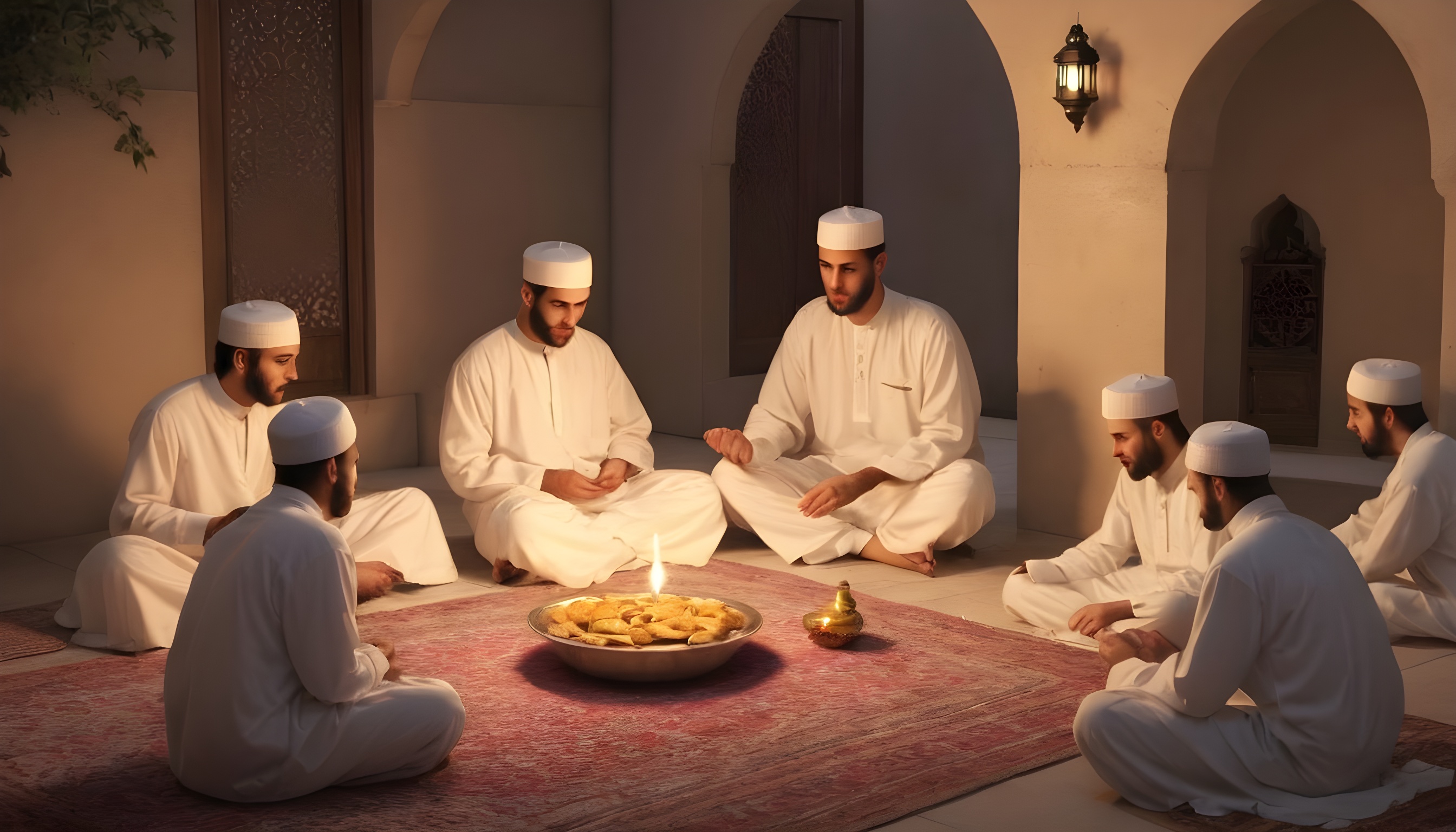The Spiritual Significance of the First Ashra of Ramadan: A Journey of Reflection and Renewal
With a shine moon represented by crescent moon which is the first moon to appear in night sky, Muslims all over the world start -a sacred journey to spiritual direction, renewal, and faith. Among these highly memorable events of the blessed month is Ashra, both of them being the first night of worship which is of the utmost importance to the hearts of the believers. This website examines the essence and derived transformations of the first Ashra of Ramadan and invites them to discover the meaning and embrace its deep spirituality.
Understanding the First Ashra:
Starting the very first day the faithful observe an chronologically organized sequence of virtues for more than a month long and that commits them to the deep spiritual working upon the personality too. This is a period when Muslims set out to be more dedicated to Allah, through long night prayers, fasting, and minding the needy. The first Ashra was a sincere symbol of all of the memorable events which were to occur at this journey. It created a mood for the days and nights that followed.

Spiritual Preparation:
As the Ashra's first day approaches, Muslims start spiritual preparation, purifying their heart from sin and their thoughts from the filth of the world in preparation to the squeezes (written as blessings) that are about to come upon them. It is a moment of thinking and having ceasing to worldly reflections as well as begging for pardon is as the believers move near to their Creator having rid them of the distraction. The spiritual lives of everyone when they practice introspection and inner-searching during the days that come up, they ponder on their spiritual state and make purposes as they want to have deep devotion and integrity in their day-to-day life.
To Buy Quran in this Holy Month Click Here
The Night of Revelation:
Ashra presents an image of the first month which is closely relate to the night of revelation, when Qur'an, the holy book of Islam, descended upon the Prophet Muhammad (SAW). Laylat ul Qadr, also known as the Night of Power or Blessings, is the most momentous event of Ramadan for Muslims. This special night falls during the last ten nights of Ramadan and Muslims believe that it is a time when Allah's favor and mercy flood over.
Drawing Inspiration:
During the first weeks of Ramadan and especially on Ashra, Muslims often look up to the way of life of the prophet Muhammad (peace be upon him) and his companions when they were observed fasting. Their faith, devotion and endurance in prayers are the ideal that Muslims even today strive to emulate. This hadith is regarded a compass that guides Muslims in their daily life. Muslims adopt actions such as reciting Quran, speaking about Allah, and praying in order to resemble the prophet.
Community and Solidarity:
Numerous Muslims also take the opportunity to dress up and audit themselves during the beginning of Ramadan. The communal atmosphere at Taraweeh prayers in the mosque or homely meals with family and friends offers a sense of strength and mutual support which is more pronounced than our differences of culture and borders. Crusty but strong bonds that make us a whole community are the result of this atmosphere of oneness.
The Power of Prayer:
At the beginning of Ashra of Ramadan, prayer becomes the supreme empowerment, leading the mankind, devotees, to prevail upon Allah, the almighty, with their humility and endurance seeking his mercy, affairs dispensation and forgiveness. Over extended bouts of standing, bowing, and prostrating, Muslims engage themselves into the musicality and tranquility of prayer, which nourishes their spirit from within and descends to them the spiritual relief of their closeness to the Divine.
For Women/Family Books Click Here
Fasting as a Spiritual Practice: Fasting as a Spiritual Practice:
The base of muscle and the first Ashra Ramadan is a canonical right pillar of Muslim belief during which Muslims fast during the day. Those that fast from the beginning of dawn up to the setting sun restrain their lips and indulges in nothing; in lieu, they are given the gift of character traits such as discipline, empathy, and gratefulness to Allah. Fasting exercise is a lesson of the rationality of moderate consumption, the consciousness of own deeds, the mercy towards everyone and finally people understand that there are some who are less fortunate than they are have a humble and compassionate attitude.
Acts of Charity and Compassion: Acts of Charity and Compassion:
Likewise, non-praying are performed during this period in the spirit of increasing generosity and tenderness towards vulnerable members of the community. Muslims are always being asked to give more share to the needy or poor ones, feed the hunger, to help the neglected ones in the true form of altruism and magnanimity. This inspiring act of selflessness and generosity depicts the center of Islam the best. Through voluntary and charitable activities, faithful souls try to follow the Prophet's (peace be upon him) footsteps in humanity and fulfill their role to serve the community.

